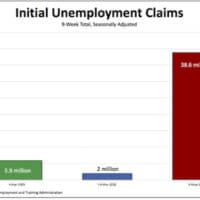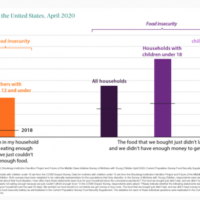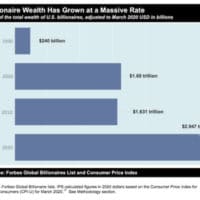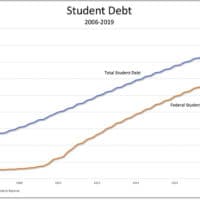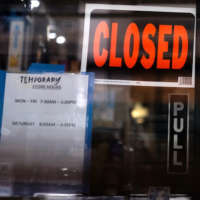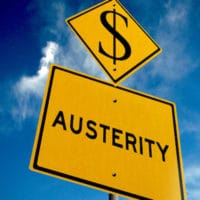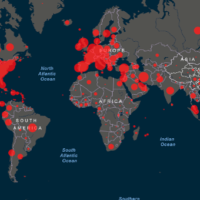-
‘The U.S. vs China: Asia’s New Cold War?’ by Jude Woodward reviewed by Sean Ledwith
The coronavirus pandemic of 2020 has slammed into the global system with almost the same impact we might expect from an asteroid strike. All aspects of economic, cultural and political activity on the planet have been devastated and disrupted in ways that seemed unimaginable just a few months ago.
-
Corporate university—pandemic edition
Will colleges and universities reopen in the fall? That’s the question on the minds of many these day—administrators, faculty, staff, students, and their families, not to mention the communities in which they live.
-
Huawei ban drags China, U.S. into tech cold war
Industries prepare for decoupling as worst scenario, accelerating homegrown technologies as Washington hawks destroy global supply chain.
-
Venezuela brands U.S.-backed Citgo sale ‘an act of modern piracy’
Venezuelan Vice-President Delcy Rodriguez last year branded the move an “organised crime that violates international law.
-
Victory: Ohio’s plan to deny workers their unemployment insurance is shelved
In early May, Ohio Republican Governor Mike DeWine began reopening the state economy. And to support business and slash state expenses, both at worker expense, he had a “COVID-19 Fraud” form put up on the Ohio Department of Job and Family Services website where employers could confidentially report employees “who quit or refuse work when it is available due to COVID-19.”
-
COVID-19 adds new dimensions to U.S.-China trade war
The Trump regime is ratcheting up its protectionist rhetoric vis-à-vis China. If this leads to new sanctions, it would worsen the COVID-induced trade crisis rather than help the U.S.
-
Chart of the day
All told, 38.6 million American workers have filed initial unemployment claims during the past nine weeks.
-
The role of the state in Venezuela
Venezuelan former Vice President Elias Jaua calls for the government to rebuild the state and retake the reins of the economy.
-
Pandemic: How big banks and big AG share blame
Here in the U.S., agribusiness lines up with pharmaceutical and military contractors in terms of being a political force to be reckoned with and, in effect, help run the country. Their needs are protected so that these pathogens have the best lawyers on the planet.
-
#Unis4all: An Open Letter to the U.S. Higher Education Community
Universities can immediately bypass feckless state & federal legislatures & finance themselves directly with “Unis” supported by the Federal Reserve For a growing majority of outspoken administrators and faculty, the economic fallout associated with the Covid-19 crisis threatens to catapult U. S. higher education into a draconian age of austerity, layoffs, and closures. The question, […]
-
Growth figures underscore economic crisis amidst COVID
Early evidence on the intensity and drivers of the COVID-induced crisis in the U.S. and Europe suggests that the official response may lengthen the recession and delay recovery
-
Hunger rises dramatically in America
Given the dramatic rise in unemployment, cuts in hours, and sharp decline in gig economy work, it isn’t surprising that hunger is becoming more common, particularly among families with children. Nearly half the U.S. couldn’t withstand a $400 emergency, and most households that have taken hits are seeing bigger income losses than that.
-
Major Lazer – ‘Get Free’ feat. Amber (of Dirty Projectors)
The speaker is too poor to move to a different region, so they can only move slightly farther away from an inevitable problem.
-
The exodus of finance from the third world
There is an exodus of finance from the third world at present, far exceeding in scale what had occurred in 2008 after the financial crisis.
-
America’s super-rich see their wealth rise by $282 Billion in three weeks of pandemic
America’s billionaires have accrued more wealth in the past three weeks alone than they made in total prior to 1980.
-
Chart of the day
A new report from the Institute for Policy Studies, “Billionaire Bonanza 2020: Wealth Windfalls, Tumbling Taxes, and Pandemic Profiteers,” reveals that the wealth of U.S. billionaires is indeed staying at home.
-
Student debt jubilee—pandemic edition
The United States is currently experiencing a dystopian orgy of death and destruction.
-
Capitalism’s weak doses of socialism to treat the economic infection of COVID-19
The same proposals that were demonized yesterday as radical socialism are embraced today to save the society from collapse.
-
Avoid austerity to prevent a state and local coronavirus depression
Local budget cuts enacted a decade ago left states and cities dangerously unprepared for COVID-19. We shouldn’t make those same mistakes again.
-
Marx in the era of pandemic capitalism
How could Karl Marx (1818–1883) help us interpret the current crisis? His theory of history offers critical resources to interpret the unprecedented crisis which is shaking the world today, while indicating at the same time that ‘the world after’ so much mentioned could only be anti-capitalist.







